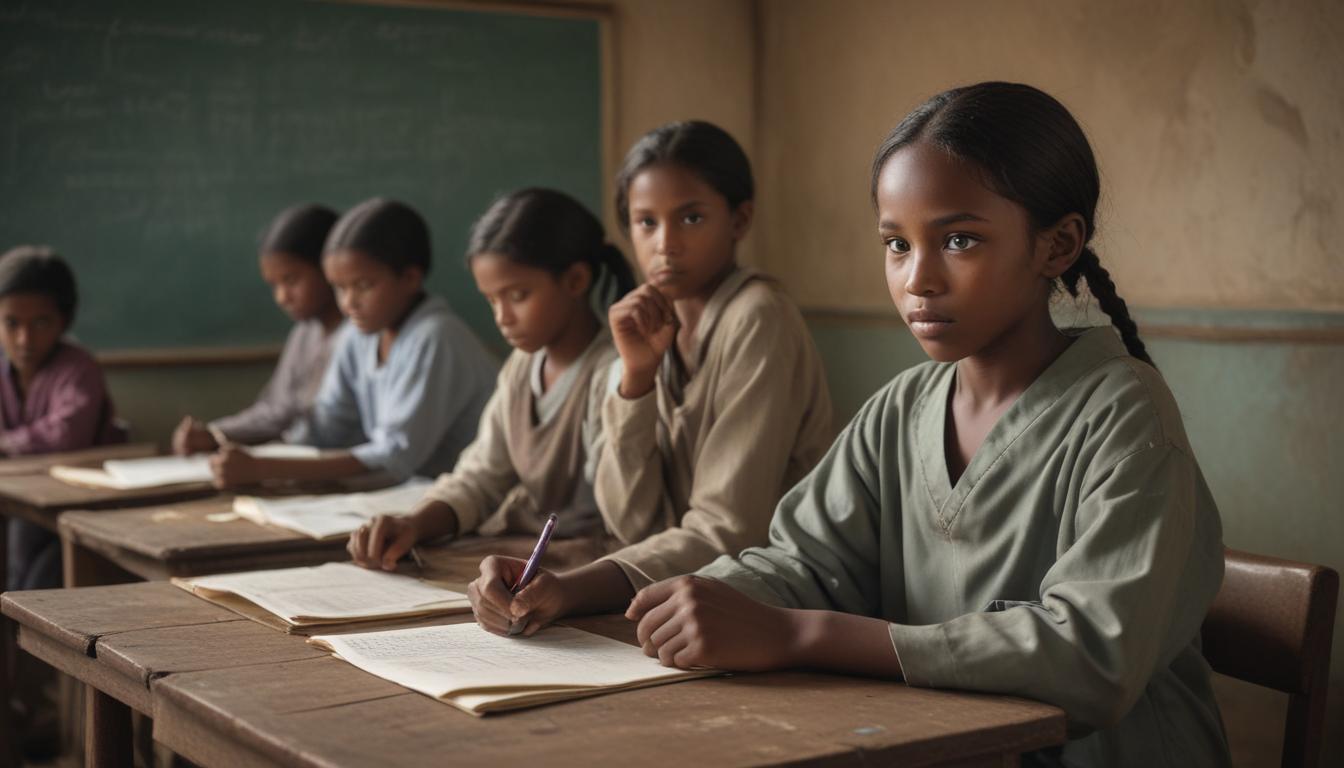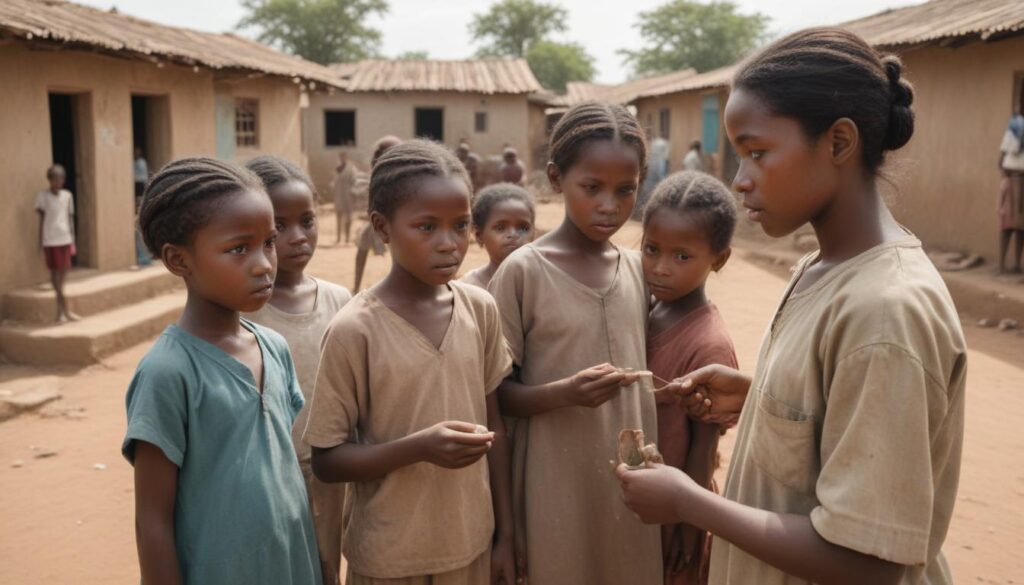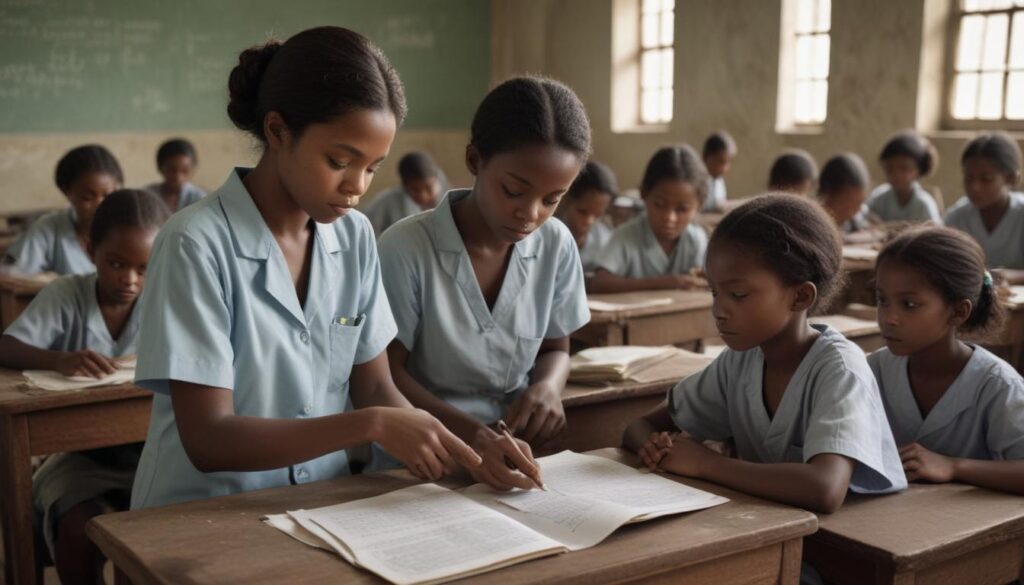Now Reading: The Future of Global Health Is Education
-
01
The Future of Global Health Is Education
The Future of Global Health Is Education

Unlocking a Healthier Future The Power of Education in Global Health
Do you ever watch the news and feel a sense of overwhelming helplessness? Reports of new disease outbreaks, vast inequalities in healthcare access, and the struggle of communities to secure basic needs like clean water can leave you feeling small and powerless. You see the problems, you feel the urgency, but the path from concern to concrete action seems foggy and inaccessible. You want to make a difference, but you’re unsure where to even begin.
The good news is that there is a powerful, accessible tool that transforms this concern into capability and helplessness into hope. That tool is education in global health.
This field is not just for aspiring doctors or scientists in remote labs. It is a dynamic, interdisciplinary area of study that provides the critical framework for understanding and solving the world’s most pressing health challenges. It is the bridge that connects your desire to help with the knowledge and skills to do so effectively. By investing in this education, you are not just learning about problems; you are equipping yourself to become part of the solution and contribute to a more equitable and resilient world for all.
What is Global Health Education Really About
When many people hear “global health,” they immediately picture doctors treating patients in a foreign clinic. While that is one piece of the puzzle, global health education is vastly broader and more interconnected. It is a multidisciplinary field that views health through a wide-angle lens, incorporating public health principles, economics, political science, sociology, environmental science, and anthropology. It moves beyond treating individual illnesses to address the root causes of poor health, which are often embedded in social structures, economic policies, and environmental conditions.
At its core, global health education equips you with a unique toolkit to analyze complex problems. You learn about epidemiology to track disease patterns, biostatistics to interpret health data, and health policy to understand how governments and organizations can create stronger health systems. You also explore the crucial role of culture in health behaviors and the economic factors that create disparities between and within nations. This approach means an engineer might learn to design sustainable sanitation systems, a communications expert might develop health campaigns that resonate with specific cultures, and a policy analyst might work to ensure medical supplies can cross borders efficiently during a crisis.
Why Investing in Global Health Knowledge is Crucial
The COVID-19 pandemic provided a stark and universal lesson that a health threat anywhere is a health threat everywhere. Investing in global health education is our best defense against future pandemics and other large-scale health crises. A well-educated global health workforce can build resilient health surveillance systems to detect outbreaks early, develop equitable distribution plans for vaccines and treatments, and foster the international cooperation needed to mount a coordinated response. This knowledge is not reactive; it is proactive, focused on building the systems and infrastructure that prevent catastrophe before it strikes.
Furthermore, the importance of global health extends far beyond infectious diseases. Educated professionals are leading the charge against the silent epidemics of non-communicable diseases like diabetes and heart disease, which are now the leading causes of death worldwide. They work to improve maternal and child health, ensuring more children survive past their fifth birthday and more mothers have safe pregnancies. They are also at the forefront of tackling one of the greatest threats of our time the health impacts of climate change, from heat-related illnesses to the spread of vector-borne diseases.
From Learning to Leading Career Paths in Global Health
One of the most exciting aspects of global health is the sheer diversity of career paths available to those with the right education. This field needs more than just clinicians; it needs thinkers, planners, managers, and advocates. A degree or certificate in global health can open doors to becoming a Program Manager for a non-governmental organization (NGO) like Doctors Without Borders or Partners In Health, where you would oversee health projects on the ground. You could become a Policy Advisor for a government agency like the World Health Organization or USAID, helping to shape strategies that affect millions.
The opportunities are vast. Research scientists are needed to develop new diagnostics and treatments. Monitoring and Evaluation Specialists are critical for ensuring that health programs are actually effective and using donor funds wisely. Logisticians manage complex supply chains to deliver medicine to remote areas, while health economists analyze the cost-effectiveness of different interventions. Even if you don’t pursue a formal degree, gaining knowledge through online courses or certificates can allow you to apply your existing skills in finance, communications, or project management to this vital and rewarding sector.

Your Role in Building a Healthier Tomorrow
Ultimately, the goal of global health education is to empower individuals to take meaningful action. Whether you are a student just beginning your journey, a professional considering a career change, or a citizen who simply wants to be more informed, you have a role to play. Education gives you the lens to understand the complexity of health issues and to identify the most effective points for intervention. It moves you from simple charity to sustainable, evidence-based solutions.
You can start today. Begin by learning more about the key issues, from maternal mortality to pandemic preparedness. Use that knowledge to become an advocate in your own community, supporting policies and organizations that promote health equity both at home and abroad. Consider how your unique talents, whatever they may be, can contribute to the larger mission. Education is the first and most critical step. By investing in your own understanding of global health, you are investing in a future where everyone, regardless of where they are born, has the opportunity to live a long, healthy, and productive life.



































